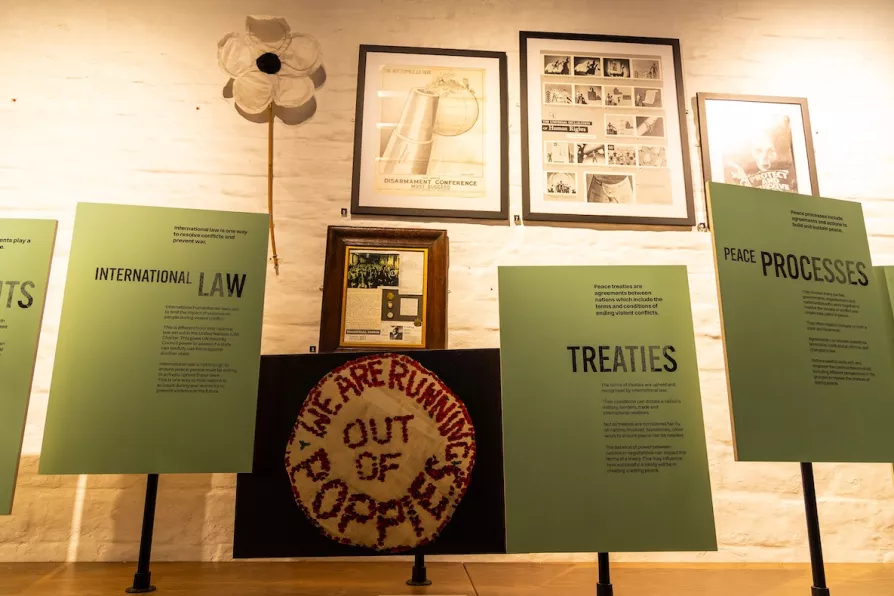
 An exhibition on the history of the white poppy at the Peace Museum in Shipley
[Neil Terry]
An exhibition on the history of the white poppy at the Peace Museum in Shipley
[Neil Terry]
ISRAEL'S war on Gaza has helped increase the demand for white poppies as Remembrance Day approaches on November 11, peace campaigners said today.
The Peace Pledge Union (PPU), which distributes the poppies, said more schools, universities and other educational organisations were placing orders following increased interest from students and teachers, “as more of their students recognise the importance of remembering all victims of war, including civilians and those affected by conflict today,” the group said in a statement.
Orders have increased by 30 per cent compared to the same period last year.

WILL DRY speaks to three former members of the armed forces about the political hypocrisy surrounding Armistice Day, how war is a function of class society, and the far right’s use of militarism and nationalism to divide working people

From hunting rare pamphlets at book sales to online panels and courses on trade unionism and class politics, the MML continues connecting archive treasures with the movements fighting for a better world, writes director MEIRIAN JUMP

We must take a stand against the government’s spending on war











